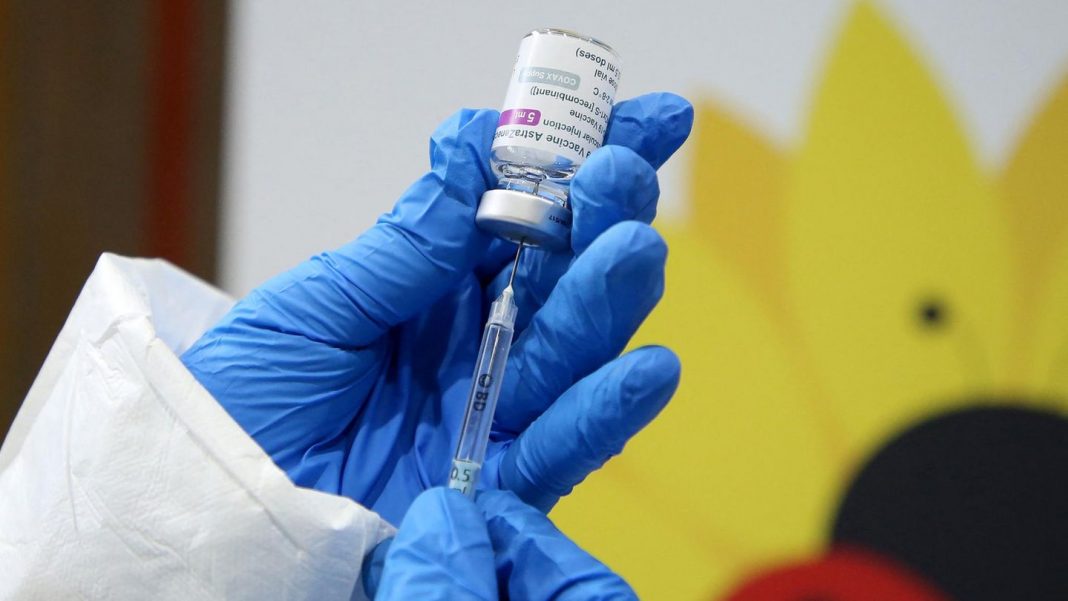Pandemic
Germany stops for the time being, AstraZeneca-vaccination – what we know and what is not
Federal Minister of health Jens Spahn (CDU) says to the suspension of the Corona vaccination with Astrazeneca: “Due to the current recommendation of the Paul-Ehrlich-Institute, the German government, the Corona vaccination with Astrazeneca as a precaution. Background newly reported cases of thrombosis of the cerebral veins, in connection with an Astrazeneca-vaccination… The Paul-Ehrlich-Institute indicates that people who have received the vaccine from Astrazeneca already, and more than four days after the vaccination increasingly uncomfortable should feel, for example, with strong and persistent headache, or with a point-like skin bleeding ends issued medical attention immediately. I have to arranging say, it is very rare. Up to now, there are seven reported cases that can stand in connection with such a cerebral venous thrombosis… The European medicines Agency, EMA will now decide whether and how the new findings will impact on the approval of the vaccine. The decision today to suspend relates to both First and Subsequent injections.”
Vaccination with the Corona vaccine, AstraZeneca will now be exposed to in Germany as a precaution. Background a recent recommendation of the Paul-Ehrlich-Institute. What do we know about the action and what is not.
After Denmark and other countries have suspended the vaccination with the Corona vaccine from AstraZeneca for the time being, now, Germany. The reason an updated recommendation from the Paul-Ehrlich-Institut (PEI) is. The PEI is entrusted to the Supreme Federal authority for vaccines and biomedical medicines in Germany and, among other things, the safety of vaccines.
Why was the Impfstopp?
Apparently, there are new reports of thrombosis of the cerebral veins in temporal Association with vaccination in Germany and Europe, such as the Federal Ministry (BMG) announced. Experts of the Paul-Ehrlich-Institute updated their recommendation for the vaccine. Further investigations are now necessary, reported the BMG.
The number of reported cerebral venous thrombosis is low – it should be seven messages.
This means that the vaccine has caused the thrombosis?
No, in the message of the BMG, the speech is only a “temporal context”. Whether and how the vaccine could have led to the observed thrombosis is currently open and the subject of further investigations.
The step is uncommon?
No, not at all. When new vaccines are introduced, is a very good look at him, what are the side effects or disorders in temporal Association with vaccination to occur. It comes to messages that require further Review, the administration of the vaccine in the short term and temporary, until more results of an investigation.
Such a move is a sign “that the systems for Monitoring of side effects work,” and not necessarily an indication that the vaccines have led to the side-effects, had declared the British health expert Peter English, as early as last week, according to the Impfstopp in Denmark.
This means that the vaccine in the fight against the pandemic is down?
The preliminary Impfstopp is a “precautionary Expose” how the Federal Minister of health Jens Spahn (CDU), said on a short term scheduled press conference. “Should be Vaccinated with AstraZeneca possible, which is quite a possibility, then we will advertise again for the trust in the vaccine.”
What should people who have recently received a vaccination with AstraZeneca?
People who have recently received a vaccination with AstraZeneca and now questions about the Impfstopp have, should contact their Doctors, said Jens Spahn at the press conference.
“The PEI points out that people who were vaccinated with AstraZeneca & more than four days after vaccination increasingly uncomfortable bleeding with the strong & persistent headache, or point – shaped skin – medical attention immediately should give,” said the BMG on Twitter.
What kind of reactions there are to Impfstopp?
SPD health expert Karl Lauterbach criticized on Twitter the decision to stop the vaccinations with AstraZeneca in Germany for the time being: “On the basis of the present data, I think it’s a mistake,” wrote Lauterbach. “The exam without suspension of the vaccination would have been due to the rarity of the complication better. In the ride now receiving 3. Shaft would be the first vaccination with the AstraZeneca vaccine is a life-saver.”
Klaus Reinhardt, President of the Federal chamber of physicians, described the measure as “good and important”. Now, a quick clarification, and complete transparency are important. “Otherwise, trust is lost.”
The countries In which the vaccines are not currently exposed to?
Vaccination with AstraZeneca pause currently in the Netherlands, France, Bulgaria, Ireland, Denmark, Norway and Iceland. Italy and Austria intervened to stop the use of certain batches of the vaccine. Denmark had suspended the vaccination with AstraZeneca at first, after a Person had died. There were also isolated reports of thrombosis in temporal Association with vaccination.
Up to and including 10. March was listed on the European medicines Agency, EMA 30 thrombosis cases temporally related to vaccination – at around five million vaccinations. This corresponds to a frequency of 0.0006 percent.



